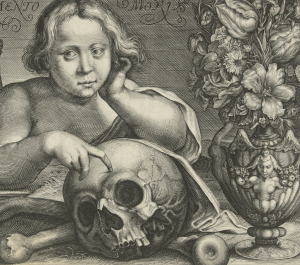At the beginning of Chapter XI in the second volume of Laurence Sterne’s Tristram Shandy he writes, “Writing, when properly managed (as you may be sure I think mine is) is but a different name for conversation.” I’ve derived much satisfaction in reading Tristram Shandy this year with a growing sense of wondering admiration. Though I’ve restarted the book three times I don’t expect to reach the end this year. Some part of me does not wish to finish. I appear to be acquiring multiple copies of the book, less defensible than giving precious shelf space to multiple translations of Homer, Dante or Don Quixote.
When younger, Dante’s Inferno, was my desert island book, but these days I am drawn more to Purgatorio. It never grows stale. This year I loved discovering the slow stanzas of Charles Singleton’s translation of this inexhaustible work. While not perhaps my favourite, the translation and heroic notes helped me to become tuned to Purgatorio in new ways. Where once the vivid imagery and intense themes of Inferno captivated me, I find the nuanced journey through Purgatorio more compelling, particularly its exploration of redemption and moral complexity.
What delights I found in Confessions of an English Opium-Eater, as direct and subversive as anything I’ve read. It is full of humour and was perfect reading for a blissfully long, damp summer. I should never underestimate my fondness for digressive, elastic books that give off a sense of prodigious erudition. Thomas De Quincey’s The Last Days on Immanuel Kant, read in a new edition published by Sublunary Editions was equally brilliant, offering a deeply humanizing portrayal of the philosopher.
There were some modern books that greatly interested me: Natassja Martin’s brilliant In the Eye of the Wild, translated by Sophie Lewis, a heart-in-the-mouth story I read twice in a row, marvelling on each page; from Fitzcarraldo Editions, Jeremy Cooper’s Brian and Kate Briggs’ The Long Form, formidably intelligent writers, whether writing essays or fiction. I was also highly entertained listening to the audiobook of Gabriel Krauze’s Who They Was, a book I would never have read on the page, but came to my attention through the subscriber edition of Backlisted.
Good biographies are rare. Jason Baxter’s The Medieval Mind of C. S. Lewis: How Great Books Shaped a Great Mind is first class and an enjoyable introduction to that writer’s precise prose. Lewis’s The Discarded Image is revelatory in bringing to life the reliable joys to the found in mediaeval and renaissance literature.
The most puzzling book I encountered this year was rereading Cyril Connolly’s The Unquiet Grave, a pensive work of recollection. I’m not sure how this unlikely and peculiar book exists but I am delighted by its existence.
This year I’ve spent much more time reading than in conversation about books. That must always have been the case as I’ve always been lucky enough to have time to read, but there appear to be fewer places to share enthusiasms with friends who share my urgent need for books. Social channels are dispersed and inclined to lapse into hyperbole about the same few contemporary prose works.
It is some consolation that such channels provide fewer distractions, allowing more time for the sort of concentrated reading I prefer. The year began with Twelfth Night. It renewed my devotion to Shakespeare’s plays which peaked with readings of The Tragedy of Hamlet and King Lear, the latter surely the most perfect form of words devised for such purpose. I intend to continue reading the other works in no particular order, as whimsy dictates.

